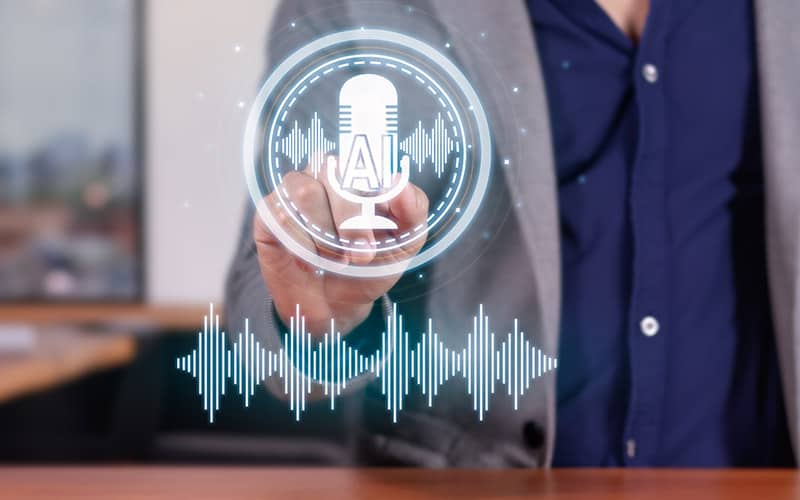Technology has always played a significant role in shaping the evolution of music. From the invention of the piano to the development of synthesizers and digital audio workstations (DAWs), advancements have enabled musicians to experiment with new sounds and genres.
AI takes this even further, introducing limitless possibilities for composition and helping artists push the boundaries of their creativity. The collaboration between humans and machines, including the utilization of the AI, with the request to provide article review example, can lead to new and exciting musical experiences that would be difficult or impossible to achieve otherwise. As AI continues to evolve, its impact on music composition will undoubtedly grow, opening up new avenues for musical expression and artistic exploration.
Understanding AI in Music Composition

AI algorithms in music composition work by analyzing large datasets of existing music in order to recognize patterns, structures, and musical elements such as chords, melodies, and rhythms. Through machine learning, AI can then generate new compositions by applying these learned patterns and creating original music. This can range from creating simple melodies to complex orchestrations across different genres.
Benefits and limitations of AI in music composition
The use of AI in music composition comes with several benefits. It provides composers with inspiration, helps them overcome creative blocks, and speeds up the composition process. AI can generate a wide variety of musical ideas, expanding the creative possibilities for composers.
However, AI is not a replacement for human creativity and intuition. It lacks the emotional depth and personal touch that human composers bring to their music. AI also struggles with understanding the context and subtleties that make music truly expressive and unique. Therefore, the best results are often achieved when humans collaborate with AI, using it as a tool to enhance their creativity rather than relying solely on it.
Advancements in AI Music Composition
AI technology has made significant strides in the field of music composition. With the ability to analyze vast amounts of data and learn patterns, AI algorithms can now generate original compositions in various genres. From classical symphonies to pop hits, AI-generated music has proven to be remarkably similar to compositions made by human musicians. This opens up exciting possibilities for artists and producers looking for new and unique sounds.
Rather than replacing human creativity, AI in music composition is often seen as a tool for collaboration. By working alongside human composers, AI algorithms can suggest melodies, harmonies, and chord progressions that might inspire new ideas. This collaboration between humans and machines has the potential to spark innovative and boundary-pushing compositions that would be difficult to achieve by either alone.
Ethical and Creative Considerations
As AI technology continues to advance, it has made its way into the realm of music composition. This development has sparked a debate surrounding the authenticity and originality of AI-generated music. Some argue that music created by AI lacks the emotional depth and nuanced creativity of human composers. However, others believe that AI can produce innovative and unique compositions that push the boundaries of traditional music.
Another important consideration is the issue of copyright and ownership in AI-generated music. While AI systems can compose music independently, the question arises as to who holds the rights to the compositions. Should it be the AI technology developers or the musicians who utilize the AI to create their music? This debate raises complex legal and ethical questions that need careful consideration.
AI’s Impact on the Music Industry
AI technology has been revolutionizing the music industry by transforming the creative process and music production. With AI algorithms and machine learning, artists and producers can experiment with new sounds, melodies, and harmonies. AI can analyze data from vast music libraries, identify patterns, and generate original compositions, providing musicians with a wealth of inspiration and creativity.
AI is also paving the way for new possibilities in music distribution and consumption. Streaming platforms and recommendation systems are powered by AI algorithms that personalize music recommendations for listeners, introducing them to new artists and genres. AI can also analyze listener preferences and behavior to create personalized playlists and curated music experiences.
Additionally, AI-generated music is making its mark in commercial applications. Brands and advertisers are utilizing AI-generated music to create original soundtracks for advertisements, videos, and films. AI can quickly generate music that fits specific moods, emotions, or brand identities, providing businesses with unique and tailored soundscapes for their marketing campaigns.
Future Outlook and Challenges
As AI technology continues to evolve, its role in music composition is expected to expand in the coming years. Here are some predictions for its future:
- AI as a Collaborative Tool: AI will increasingly be used as a tool to assist human composers in the creative process. AI algorithms can generate new musical ideas, explore unconventional harmonies, and provide composers with inspiration and suggestions.
- Personalized Music Experiences: With AI’s ability to analyze vast amounts of data, it can create personalized music compositions tailored to individual listeners’ preferences, moods, and emotions.
- Genre Fusion and Experimentation: AI has the potential to break down genre boundaries and facilitate the creation of unique and experimental music styles by combining elements from different genres.
Addressing concerns and potential challenges in AI-powered music creation
While AI holds great promise in music composition, it also presents some challenges:
- Preserving Human Creativity: Some worry that relying too heavily on AI-generated music may diminish the role of human creativity and originality in the composition process. It will be essential to strike a balance between AI assistance and human expression.
- Ethical Considerations: As AI becomes more sophisticated, questions surrounding intellectual property rights and ownership of AI-generated music will arise. The legal framework will need to adapt to address these issues.
- Quality versus Quantity: With AI’s ability to generate vast amounts of music quickly, the challenge lies in distinguishing between quality compositions and mere quantity. Finding ways to assess the artistic value of AI-generated music will be crucial.
Conclusion
Rather than fearing AI as a threat to human creativity, we should embrace it as a powerful tool that can unlock new levels of innovation and push the boundaries of music composition. By harmonizing with machines, musicians can harness the potential of AI to create music that is both innovative and deeply human.
In conclusion, AI’s role in modern music composition should be seen as a partnership where humans and machines work together to create something truly unique and transformative. With the right approach, AI has the potential to revolutionize the music industry and take creativity to new heights.
